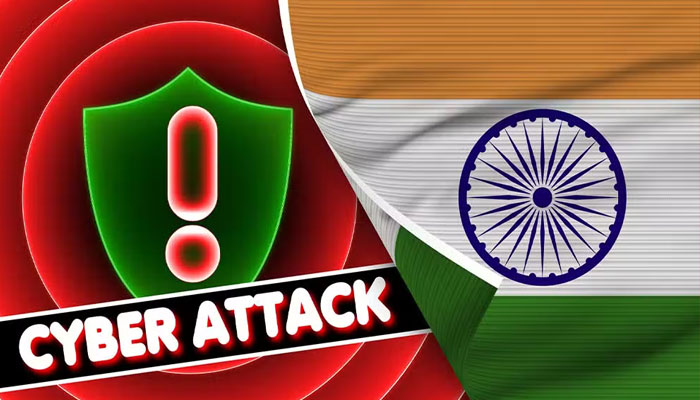For years, the unresolved animosity between India and Pakistan has featured brawls along the border, diplomatic disputes and the possibility of nuclear fallout. But the aftermath of the Pahalgam terror attack on April 22, 2025 introduced cyberwarfare into this conflict. While there are missiles and speeches, a new kind of battling takes place online that is affecting how wars are fought today. Today’s cyber attacks in the India-Pakistan conflict are not minor details; they strongly influence the outcome and should be carefully analyzed. Using online tools, both countries have increased their efforts toward their military goals, while cyberattacks help them powerfully. Recent reports say that Pakistani-related hacker groups have hit Indian energy sector systems, causing claims of significant disruptions, but a recent CloudSEK report doubts the accuracy of those claims. In addition, groups of Indian vigilante hackers have apparently taken down hundreds of Pakistani websites under the names “Operation CyberShakti,” raising the level of activity in cyberspace. What’s remarkable is that cyberwarfare deepens the cultural division between India and Pakistan. Since it is often hard to identify the source of cyberattacks, these strikes are unmatched in how easily they can be done in secret. If authorities deny a problem, it tends to get worse. Some users on X have discussed the idea that Pakistan’s cyber abilities could be supported by its cooperation with China which appears true since they are so close but is not confirmed by any public facts. Many people have raised concerns about India’s cyber readiness and the Pahalgam attack indicated some gaps in its defenses.The shutting down of important Indian websites due to computer threats shows how vital a nation’s digital network is. Cyberwarfare isn’t limited to military infrastructure; it also creates problems for things such as vital services, banking, railways and free speech. Both sides in information operations are now using social media to spread narratives that influence people around the world. Operation Sindoor supposedly worked well to overcome Pakistan’s propaganda, although it is unclear who has a stronger advantage now. Many are carefully watching what happens online, as analysts say social media is now where conflicts are played out and ideas spread faster than through TV news. However, this new trend creates difficult questions to address. Are Russian forces after real results in the war or are they just trying to look tough? What the report uncovers is that Pakistan’s top cyber actors may talk big but have little real impact. Even so, since India has moved so rapidly online, it is a prime target, though its attack capabilities are now developing. Because of this difference, countries feel pressured to make moves that could create more instability in the region.The biggest problem is that rules are poorly defined. Unlike the world of nuclear weapons, cyberattacks are not always met with disaster. No worldwide agreement exists on what a cyber attack might count as an “act of war.” Should the power grid fail or critical military communications be interrupted, as suggested in some X posts, the cross-over from cyber to real-world war may occur. As both nations have found out, cyberweapons are affordable, can cover a wide range and might act flawlessly, so they pose serious risks. At the start, India and Pakistan should give greater priority to increasing their cyber resilience than to carrying out offensive acts. Not being able to prioritize cyber security after Pahalgam has woken up India, while Pakistan’s reputation could suffer from relying on hacks whose source isn’t clear. Second, a decrease in tensions in the region will depend on discussing cyber norms, though progress seems impossible because of hostilities today. Additionally, nations must start creating solid guidelines for cyberwarfare or South Asia will serve as a test area for digital chaos. Since technology rules in defense and deterrence, now the risks go far beyond borders or devices. Considering how much we rely on technology today, it is crucial that countries and the world, understand that the best defenses will be those that last, not only the ones that attack the hardest.




Comments are closed, but trackbacks and pingbacks are open.